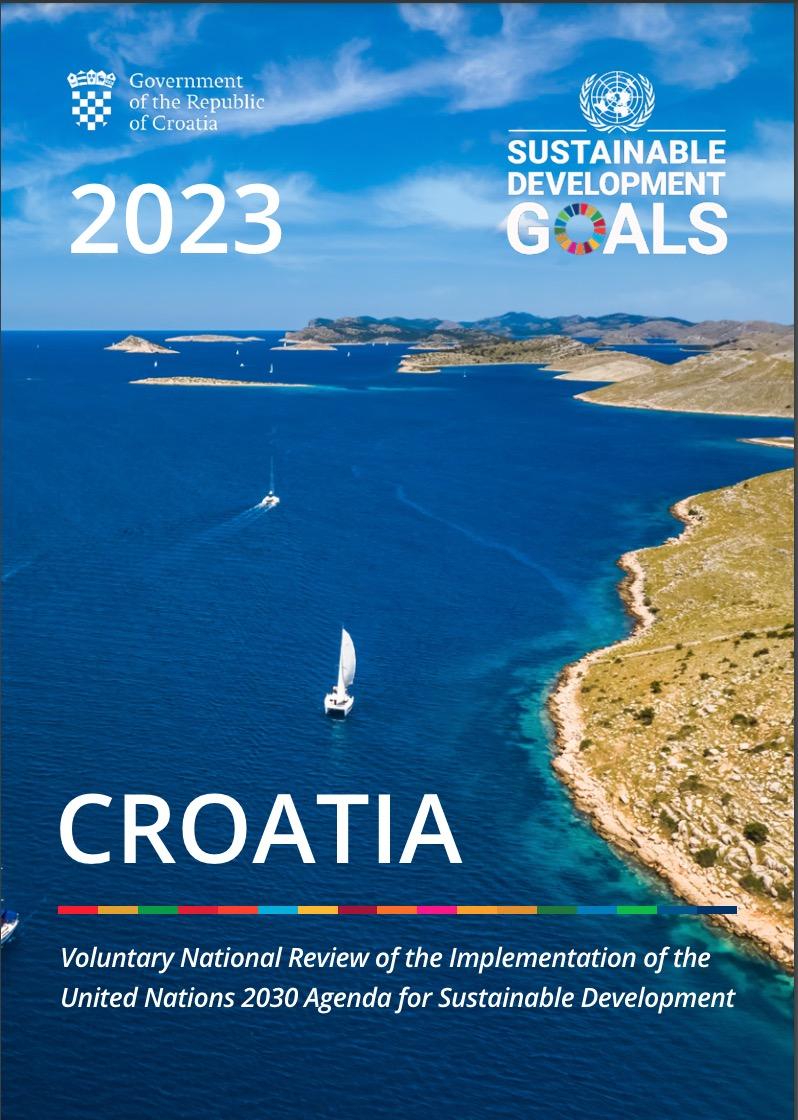Croatia Voluntary National Review 2023
Sustainable development is one of Croatia's priorities, considering that Croatia belongs to the Mediterranean, one of the regions of the world that will be hardest hit by climate change, increasing aridity, floods and rising sea levels. This is particularly reflected in national policies, initiatives and strategies to achieve the SDGs at national and global level. While increasingly closing its economic gap with developed EU economies, Croatia strives to do so without sacrificing its climate commitments, which it pursues in parallel. Thus, the country aims to reduce its greenhouse gas emissions by at least 65% until 2030 compared to 1990 levels, and to increase the production of electricity from renewable sources to more than 35% by 2030. With 31% of its primary energy consumption coming from renewable energy sources, Croatia ranks 8th among EU countries, with an average of 22%. Like the rest of the world, Croatia faced several serious challenges in 2020. In addition to the threats posed by the consequences of climate change, the global crisis triggered by the COVID‑19 pandemic led to a significant decline in economic activity, although the Government opted for targeted health measures preserving individual freedoms as much as possible. Croatia was also struck by two devastating earthquakes in the capital Zagreb and the region of Banovina. Great damage was caused and the consequences of earthquakes, several times greater than the impact of the pandemic, will take years to repair. The Croatian economy has also been affected by the Russian invasion of Ukraine, to which Croatia nevertheless has provided humanitarian, economic, political and military assistance from the outset of the war. Despite all these challenges, Croatia maintained social cohesion and was able to sustain economic growth throughout these challenging times. Looking back at the VNR 2019, Croatia has made and continues to make significant progress towards achieving the SDGs. Improvement is particularly evident in the areas of economic and social fairness, labour productivity and macroeconomic stability. Other areas where significant progress has been achieved are energy transition to climate neutrality, the protection of the environment and nature, reducing the risk of poverty, improving living standards and promoting equality. Croatia also promotes sustainable social and economic development through the implementation of policies that support the national economy in this demanding period, with the aim of ensuring that no one is left behind and that the most vulnerable social groups are supported. Furthermore, with its reforms and investments Croatia fosters three parallel processes – digital transformation, demographic renewal and green transition, which includes better waste and water management, efficient public services and results in a better living standard across the country.

